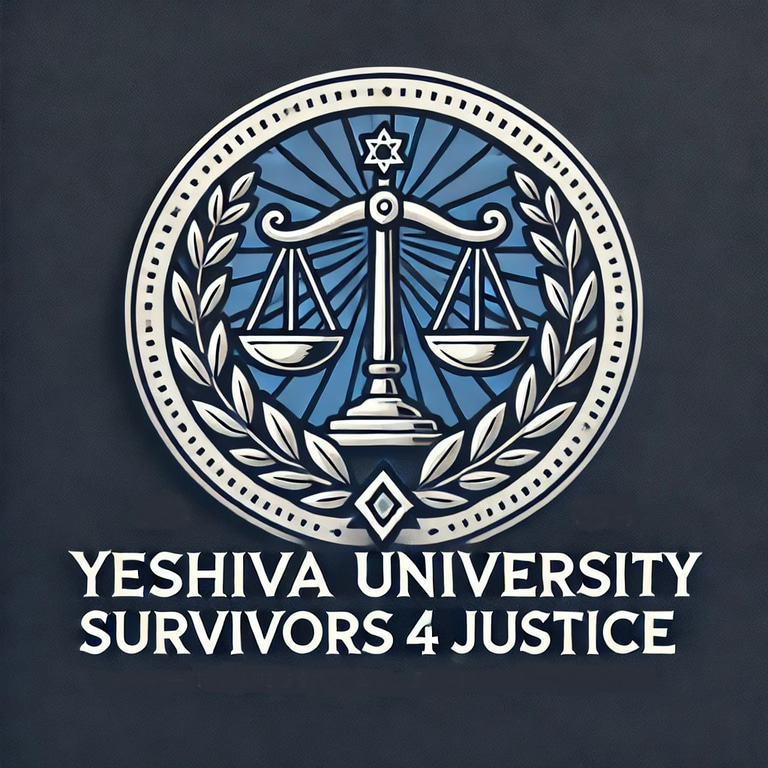Lead Plaintiff in Yeshiva University Abuse Case Demands Firings After University Seeks Mental Health Records of Holocaust Survivor Parents and Dating Histories of Victims
In a powerful Times of Israel op-ed, journalist and abuse survivor Mordechai Twersky exposes Yeshiva University’s shocking legal defense strategy: demanding the mental health records of his Holocaust survivor parents and his personal dating history. Calling it “intimidation by legal proxy,” Twersky demands accountability—starting with the dismissal of YU’s president, legal counsel, board members in the know, and outside law firm.
7/7/20252 min read


NEW YORK, NY, July 7 – In a searing op-ed published today in the The Times of Israel, Mordechai I. Twersky, lead named plaintiff in the ongoing sexual abuse lawsuit against Yeshiva University (YU), has publicly called for the immediate removal of the university’s president, legal counsel, board members, and outside law firm, citing what he describes as “desecration” and “intimidation by legal proxy.”
The piece, titled “Why Is YU Probing My Holocaust Survivor Parents’ Marriage?”, centers on shocking legal demands made by Yeshiva University’s attorneys in 2025, including:
“…copies of any family therapy and/or couples therapy records of Plaintiff’s family/parents from the period of Plaintiff’s childhood through Plaintiff’s 18th birthday, sufficient to show the existence, if any, of family or marital instability, economic instability, employment instability, and/or other circumstances or conditions within the home that had an adverse impact upon Plaintiff or Plaintiff’s family.”
and
“Documents sufficient to show any online dating website in which Plaintiff has registered and/or participated at any time.”
Twersky writes that these tactics are “an attempt to wrap the trauma of childhood sexual abuse victims around the marriages and private struggles of their Holocaust survivor parents,” calling the approach “a deliberate tactic meant to reframe pain as pathology, to turn survivors into suspects, and to sow shame where there should be support.”
The demands were issued in writing by Seyfarth Shaw LLP, the outside law firm retained by YU.
“This is not discovery,” the op-ed reads. “It is desecration.”
Twersky, who was a student at YU’s affiliated Manhattan high school in the 1980s, has also raised alarms about the apparent loss of testimony from a key witness, a former administrator who withdrew from a scheduled deposition after contact with YU’s attorneys. In the essay, Twersky warns:
“This raises serious concerns and could be perceived as an effort to influence a key witness’s cooperation.”
The op-ed levels sharp demands:
“It is not just Yeshiva University President Ari Berman, his General Legal Counsel Avi Lauer, and his lawyers who must step aside. The board itself must answer for any role it may have played. No institution that spends millions of dollars over more than a decade to silence victims can credibly claim to be built on Torah or ethics.”
The piece concludes with a call for a “tabula rasa”—a clean slate including “new leadership, new standards, new safeguards,” and “the immediate severing of ties with Seyfarth Shaw LLP.”
© 2026. All rights reserved.
This website is managed by an independent team of volunteers and advocates and is not affiliated with, endorsed by, or connected to Yeshiva University or any of its subsidiaries, affiliates, or representatives. All content provided on this website, including articles, opinions, survivor stories, and other materials, is for informational purposes only. All information related to ongoing legal cases, including survivor testimonies and legal updates, is based on publicly available records or the expressed consent of those involved. This site does not provide legal, medical, or professional advice and should not be relied upon as such. For specific legal or professional inquiries, please consult a qualified expert. The site’s administrators encourage responsible sharing of this content. Unauthorized use, reproduction, or dissemination of the materials contained on this website without prior permission is prohibited. All photos and videos on this site are licensed and for illustrative purposes only, unless explicitly stated otherwise in photo captioning.
